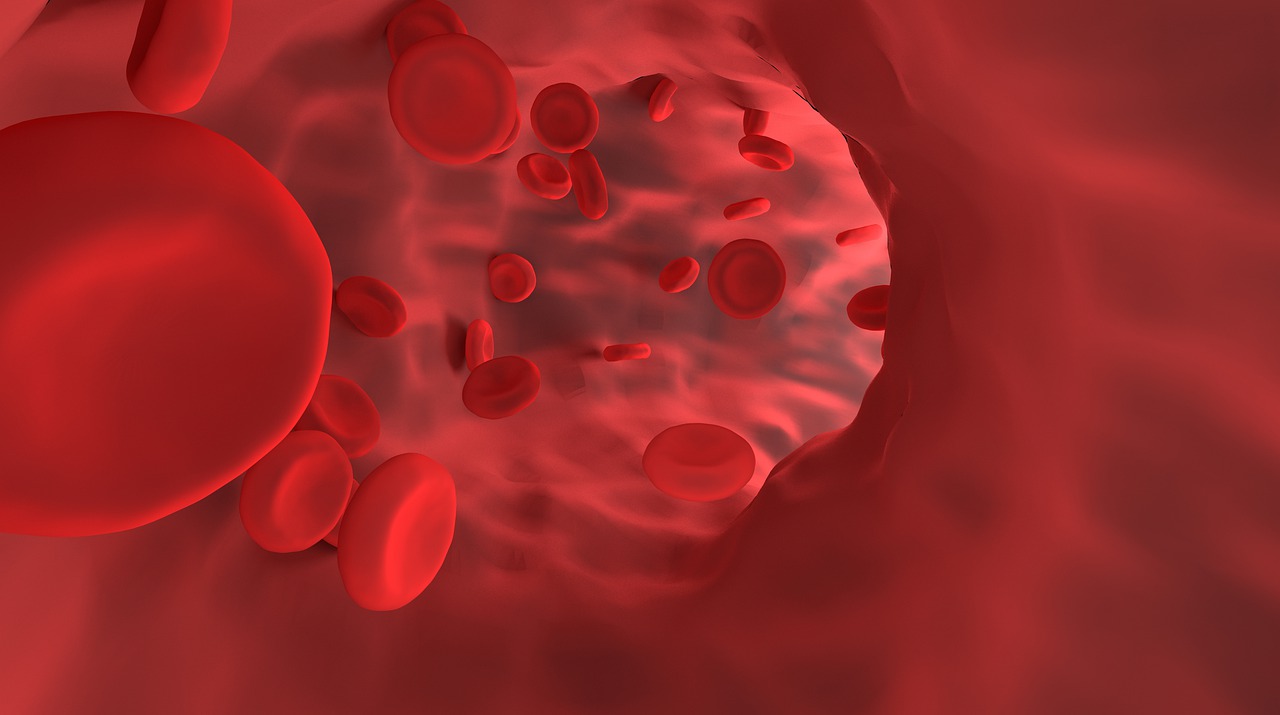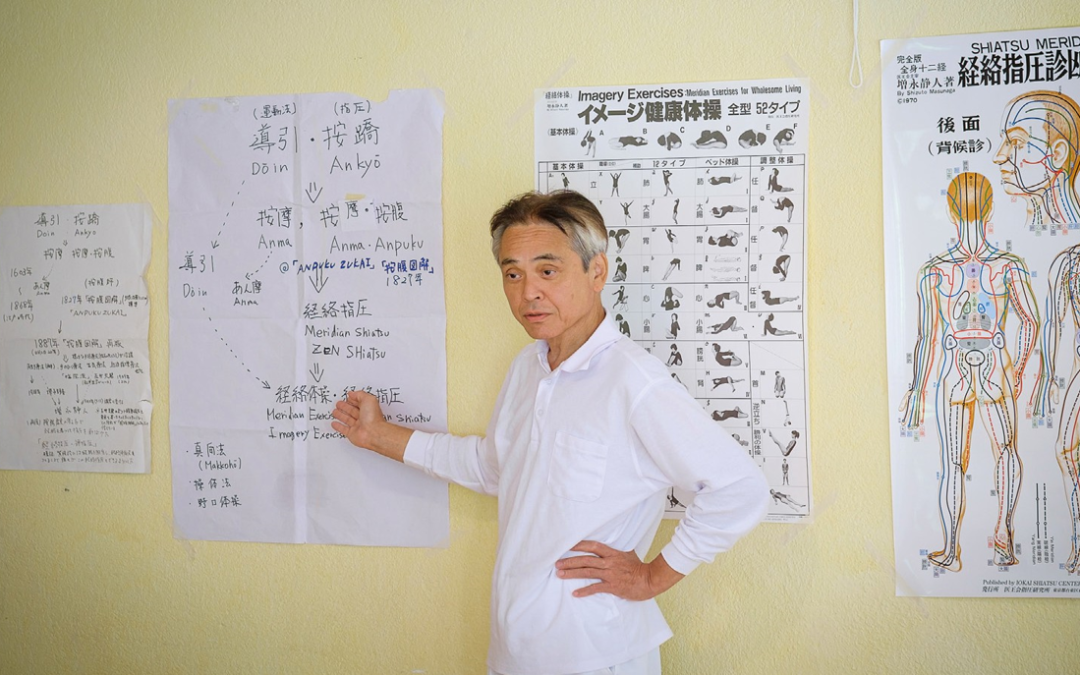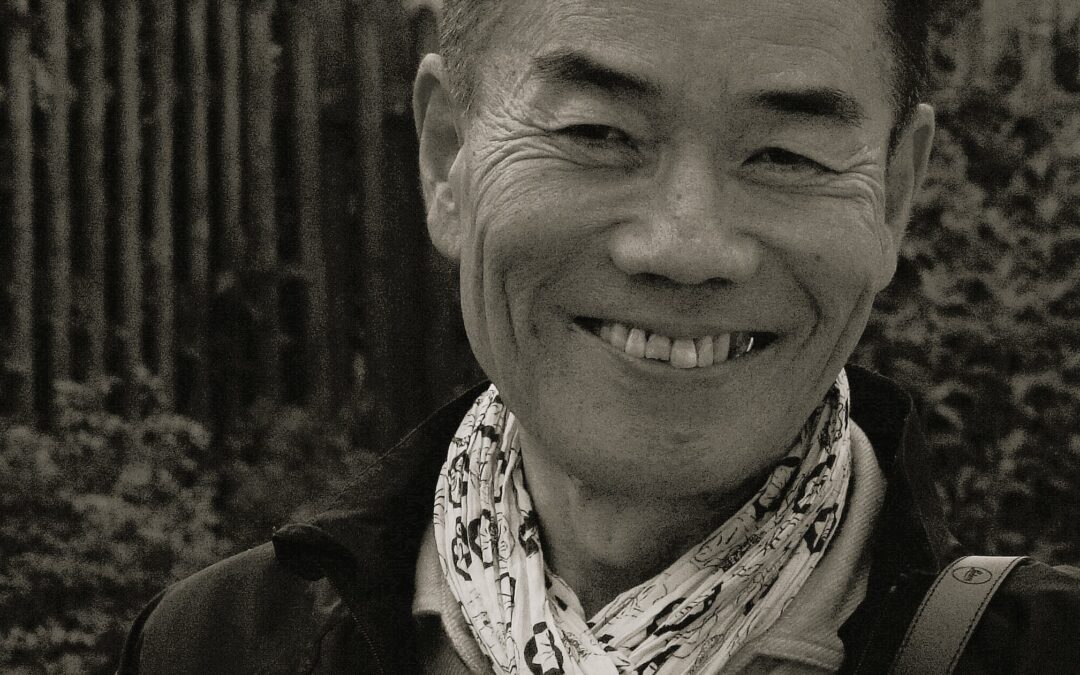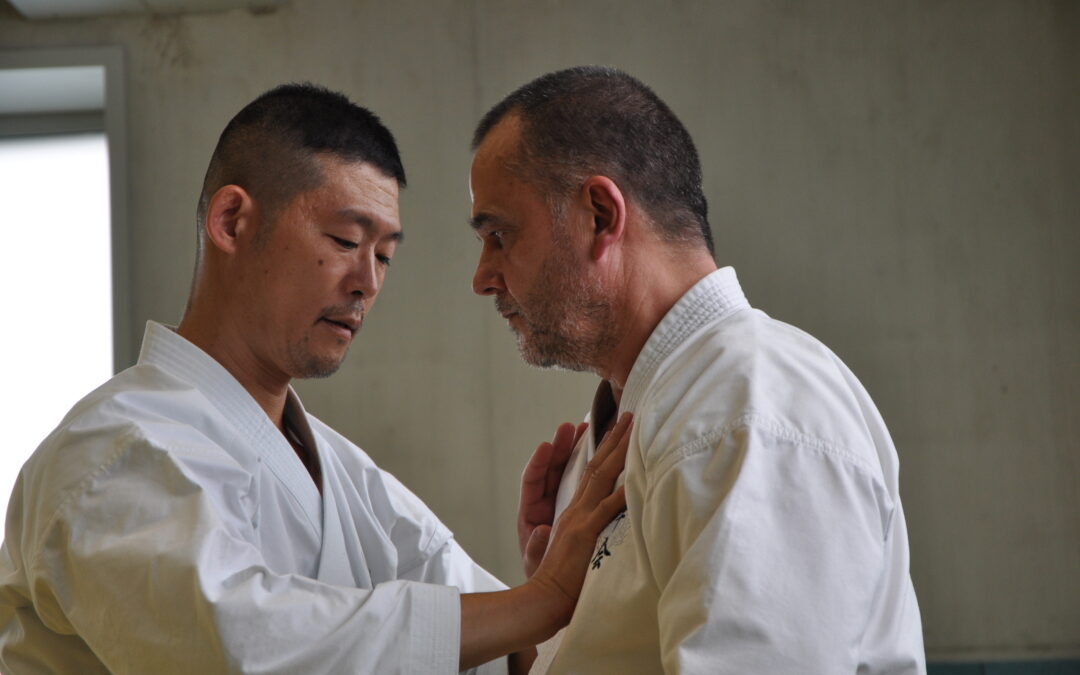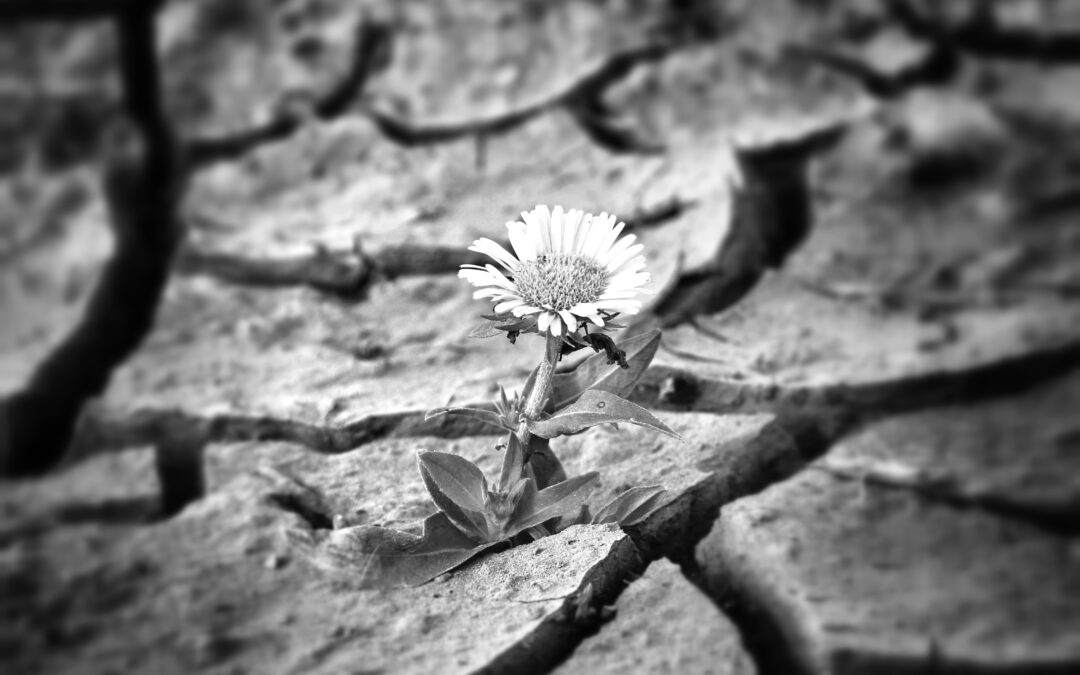According to oriental medicine, the blood related disorders are legion: headaches, anemia, menstruation disturbances, mental breakdown, epistaxis, bloody stools and many others are all tied up to an unbalance of Blood. Therefore, the points that are related to it are of the utmost importance. But while all Shiatsu students and practitioners are aware of the well-known Spleen 10 “Sea of Blood” point, this is usually not enough to help the Blood to return to its natural state. We present here the family of Blood points to support you in your practice.
In oriental medicine, we learn very early about Yin and Yang, but there is a third form of energy that is not always well studied in Shiatsu schools: the energy of Blood. While the imbalances of the Qi are well addressed, those of the Blood are unfortunately lacking. Yet in the ternary “Earth-Man-Heaven” framework, Blood represents the middle layer, that of the human being made of flesh and blood. Moreover, it is said in the Chinese classics that Qi and Blood are like the two sides of the same coin. Qi governs the Blood and the Blood nurtures the Qi.
Blood is mainly generated from the Spleen/Stomach pair “when liquids and grains” have been introduced and transformed. This is the reason for the high number of points that you will find later in the article that are related to the Spleen. The Blood circulates in the “Mai” in a never-ending circular loop thanks to the action of the heart muscle, hence the phrase “the Heart governs the Blood”. We also know that the Kidney filters the aqueous aspect of the Blood, while the Liver “stores the Blood”. Finally, the Lungs vitalize the Blood by oxygenating it and eliminating its carbon dioxide. Lungs, Liver, Spleen, Kidney and Heart, the 5 major Yin organs, will all have a role to play at one time or another in the vitality of the Blood.
Functions of Blood
Blood has several functions that can be briefly summarized as follows:
1. Blood is nourishing. It regulates the proper flow of Yin/Yang. When all is well it gives stamina to the muscles, softens the joints, nurtures the organs and guts (Zangfu 脏腑).
2. Blood is a carrier. It conveys the breathes, the Humors, the Jing and reaches all the places in the body that need it.
3. Blood is the anchor of the spirits. In Chinese psychology we speak of the so-called “visceral spirits” to define the different aspects of the psyche. In order to be at peace, the 5 spirits (Po, Hun, Shen, Zhi and Yi) must be anchored in the Blood of their abode (the 5 Yin organs). Thus, the psyche is in balance.
4. When addressing gynecology, Blood is obviously of the utmost importance for the correct function of menstruation and for the proper development of the baby in the course of the nine months of pregnancy.

It is becoming clear that the three major disorders are all having a direct impact on the Blood, namely Blood Deficiency, Blood Fullness and Blood Stasis. These will have different consequences depending on the organ or organs affected. It is therefore essential to study this topic in order to avoid missing the imbalances in the human body.
Key role in the defense of the body
In the dialectic of oriental medicine, it is said that the body protects itself via four successive layers which act as barriers against external attacks. By knowing their order and role, it is possible to identify the level at which a pathology is to be found.
- Wei is the most outer defensive layer, outside the channels of the body, in the space separating the muscles and the skin where exterior pathogens first invade. This space is often referred to as the ‘Lung’s Defensive Qi’
- Qi is the layer of the Breathing, which flows within us and especially in the Jing Luo (pathways or meridians)
- Ying/Yin is the nourishing layer, which takes care of the nourishment of the body
- Xue is the Blood layer, the deepest layer. Xue or blood is the liquid life force of the body, and its key proponent is nourishment.
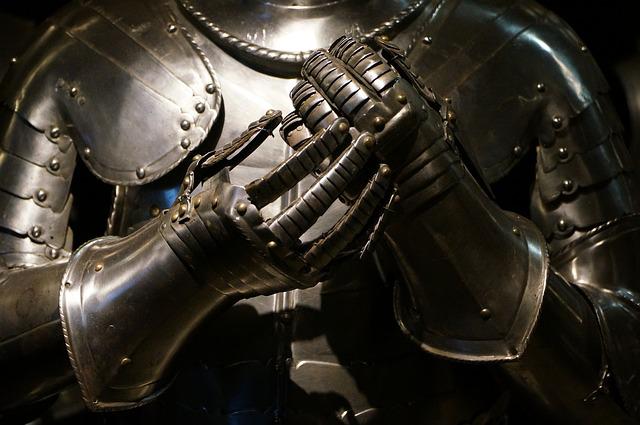
This gives us information on the deepness of the area affected the severity of the disease and the level affected by the infection. Obviously, the deeper the layer, the more important the symptoms are. Thus, an aggression of the Blood will always have a deep impact on the body as well as on the mind of the person. It is therefore essential to know how to act on the Blood in order to remain both strong and healthy.
Summary of points
- Lung: Lu3, Lu5, Lu9, Lu10
- Stomach: St29
- Spleen-Pancreas: Sp1, Sp6, Sp8, Sp10, Sp21
- Heart: Ht6
- Urinary Bladder: UB15, UB17, UB40, UB43
- Kidney: Kd5, Kd8, Kd14
- Pericardium meridian: PC4
- Liver: Liv1, Liv8
- Governing vessel: GV14
- Conception vessel: CV7
TIANFU (Celestial Warehouse) Lu3
- Relevant indications:
- Nosebleed, spitting blood, coughing blood, wheezing, dyspnea, coughing, asthma.
- Classic combinations:
- Nosebleed: Tianfu Lu3 and Hegu LI4.
CHIZE (Cubit Marsh) Lu5
- Relevant indications:
- Coughing up blood, coughing blood, nosebleeds, vomiting blood, heart pain, heart agitation.
- Classic combinations:
- Spitting blood, at certain times being hot and sometimes cold: tonify Chize Lu5 and disperse Yuji Lu10
TAIYUAN (Great abyss) Lu9
- Relevant indications:
- spitting blood, coughing blood, vomiting blood, restless heart with heart pain and jittery pulse, chest tightness, maniac delirium, pulseless syndrome.
- Classic combinations:
- Lung and heart pain: Taiyuan Lu9 and Yuji Lu10.
- Loose talk: Taiyuan Lu9, Yangxi LI5 and Kunlun UB60.
YUJI (Fish Border) Lu10
- Relevant indications:
- coughing with blood, vomiting blood, blood in urine, damp genital area itching, impotency with abdominal distension.
- Classic combinations:
- Yuji Lu10 Blood Vomiting, Quze PC 3 and Shenmen Ht7.
GUILAI (Return) St29
- Relevant indications:
- Amenorrhea, irregular menstruation, blood stasis due to cold in the uterus.
YINBAI (Hidden White) Sp1
- Relevant indications:
- Uterine bleeding, menorrhagia, vomiting blood, nosebleed, heat disorder with nosebleed, blood in urine, blood in feces.
- Classic combinations:
- bloody feces: Yinbai Sp1 and Zu Sanli St36.
- Bloody stool: Yinbai Sp1, Tianshu St25, Neiting St44, Qihai CV6, Zhaohai Kd6 and Neiguan PC6.
- Vomiting and nosebleed: Yinbai Sp1, Pishu UB20, Ganshu UB18 and Shangwan CV13
- Severe and incessant nosebleed: Yinbai Sp1 and Weizhong UB40
- Hot head and nosebleed: Yinbai Sp1, Feiyang UB58, Jinggu UB64, Kunlun UB60 and Chengshan UB57.
SANYINJIAO (Three Yin Intersection) Sp6
- Relevant indications:
- Irregular menstruation, uterine bleeding, uterine bleeding with dizziness, menorrhagia, amenorrhea, dysmenorrhea, difficult labor during childbirth, failure of lochia (mucosal residue) to descend, postpartum with dizziness, palpitations, blurred vision, insomnia, eczema, hives.
- Classic combinations:
- Uterine bleeding: Sanyinjiao Sp6, Yinjiao CV7 and Yangchi TB4
- Incessant uterine bleeding: Sanyinjiao Sp6, Jiaoxin Kd8, Yingu Kd10 and Taichong Liv3.
- Menorrhagia: Sanyinjiao Sp6, Tongli Ht5 and Xingjian Liv2.
- Disordered menstruation: Sanyinjiao Sp6, Zulinqi GB41 and Zhongji CV3.
DIJI (Earth’s Crux) Sp8
- Relevant indications:
- Irregular menstruation, dysmenorrhea, abdominal lump in women due to qi and blood stasis. Also stops nosebleeds and uterine bleeding.
- Classic combinations:
- Irregular menstruation: Diji Sp8 and Xuehai Sp10
XUEHAI (Sea of Blood) Sp10
- Relevant indications:
- Irregular menstruation, dysmenorrhea, amenorrhea, uterine bleeding, coagulated uterine bleeding, sudden uterine bleeding, postpartum, Qi and Blood deficiency, hives, eczema, erysipelas, shingles, hot and painful herpes, scrotum ulceration and itching, Lin’s syndrome ( reddish urine or with dark purplish clots, severe burning sensation, trouble in urinating, distension with pain in the urethra, in severe cases involving the umbilicus, red tongue tip, thin yellow lingual coating, rapid energetic pulse).
- Classic combinations:
- Irregular menstruation; Xuehai Sp10 and the GB26 point of the Daimai (Belt Vessel).
DABAO (Winnower Gate) Sp21
- Relevant indications:
- whole body pain, weakness of the four limbs, flabbiness of the members.
YINXI (Yin Cleft) Ht6
- Relevant indications:
- Unbearable and throbbing heart pain, fullness of the chest, palpitations, fear and palpitations, sudden attack of heart pain, nosebleed, vomiting of blood.
XINSHU (Heart Shu) UB15
- Relevant indications:
- heart pain, chest tightness with restlessness, chest pain pulling back, palpitations, irregular pulse, poor memory, anxiety, crying in pain, insomnia, excessive dreaming, trance-like distraction, speech impediment, coughing and blood, vomiting of blood, nosebleed, night sweating.
- Classic combinations:
- crying with pain: Xinshu UB15, Shenmen Ht7, Jiexi E 41 and Daling PC7.
- melancholy and trance distraction: Xinshu UB15, Tianjing TB10 and Shendao GV11.
- trance and mental confusion: Xinshu UB15, Tianjing TB10 and Juque CV14.
- mental stupidity and slowness of mind: Xinshu UB15, Shenmen Ht7, Shaoshang Lu11 and Yongquan Kd1.
- restless heart: Xinshu UB15 and Juque CV14.
- coughing with spitting blood: Xinshu UB15, Gansu UB18, Quepen St12, Juque CV14 and Jiuwei CV15.
GESHU (Diaphragm Shu) UB17
- Relevant indications:
- All Blood diseases, epigastric pain, fullness of abdomen and flank, pain of the whole body, pain of skin, flesh and bone, stabbing pain of heart, heart pain after feeding, swamp fever, night sweats, spontaneous sweating, steam bone syndrome. Fever without sweating, aversion to cold, manic-depressive disorders, coughing with blood, vomiting with blood, blood in stool, hives, bi of the whole body.
WEIZHONG (Bend Middle) UB40
- Relevant indications:
- Pain and stiffness of the lumbar spine, heaviness of the lumbar region and buttocks, nose bleed, painful wound or ulcer , erysipelas.
- Classic combinations:
- Severe and incessant nosebleed: Weizhong UB40 and Yinbai Sp1.
- Anthrax, furuncle on the back: Weizhong UB40 and Jianjing GB21 and do a lot of Moxa.
GAO HUANG SHU (Above The Diaphragm Shu) UB43
- Relevant indications:
- Cools Blood-heat, stops bleeding, removes Blood stasis, nourishes and harmonises Blood (and Yin)
- Regulates the diaphragm, descends counterflow Qi
- Moves Qi locally and along the channel pathway
- Classic combinations:
- With UB17, promotes and strengthens haematopoiesis
SHUIQUAN (Water Spring) Kd5
- Relevant indications:
- Amenorrhea, irregular menstruation, dysmenorrhea, delayed menstruation with epigastric pain, prolapse of the uterus.
- Classic combinations:
- Amenorrhea with a lot of tightness and pain in the upper epigastrium area: Shuiquan Kd5 and Zhaohai Kd6.
- Irregular menses: Shiquan Kd5 and Tianshu St25.
JIAOXIN (Intersection Reach) Kd8
- Relevant indications:
- womb bleeding, irregular menstruation, dysmenorrhea, amenorrhea, prolapsed uterus.
- Classic combinations:
- Incessant uterine bleeding: Jiaoxin Kd8, Yingu Kd10, Taichon Liv3 and Sanyinjiao Sp6.
- Reduction of uterine bleeding: Jiaoxin Kd8 and Heyang UB55.
SIMAN (Fourfold Fullness) Kd14
- Relevant indications:
- Abdominal distension, abdominal oedema, diarrhea, constipation, masses below the umbilicus, painful lumps, pain below the umbilicus, irregular menstruation, uterine bleeding, blood stasis in the uterus, acute pain from blood stasis.
XIMEN (Xi Cleft Gate) PC4
- Relevant Indications:
- Chest pain, heart pain, heart pain with vomiting, blood vomiting, cough with blood, nose bleed, furuncle and anthrax, restless heart, insomnia, melancholy and fear, fear of people you don’t know, weakness of shen.
- Classic combinations:
- Heart pain: Ximen PC4, Quze PC3 and Daling PC7.
- Heart pain with agitation and fullness: Ximen PC4 and Jiquan Ht1.
- Spitting blood: Ximen PC4 and Daling PC7.
- Fear of people, lack of shen: Ximen PC4 and Dazhong Kd4.
DADUN (Metal Yang) Liv1
- Relevant indications:
- Irregular menstruation, incessant uterine bleeding, menorrhagia, metrorrhagia, bloody urine, nosebleed.
QUQUAN (Lower Ridge) Liv8
- Relevant indications:
- Abdominal masses in women due to blood stasis, infertility due to blood stasis, amenorrhea, lower abdominal swelling, pain in the abdomen and flank, umbilical pain.
DAZHUI (Great Hammer) GV14
- Relevant indications:
- Nosebleed.
- Classic combinations:
- Nose bleed: Moxa Dazhui GV14 and Yamen GV15.
YINJIAO (Yin Intersection) CV7
- Relevant indications:
- Uterine bleeding, irregular menstruation, amenorrhea, leucorrhea, infertility, incessant flow of lochia after childbirth.
Sources:
- Some acupuncture points which treat disorders of Blood; Peter Deadman and Mazin Al-Khafaji, Journal of Chinese Medicine
- Pratique de la médecine chinoise; Giovanni Maciocia; Satas editions, 1994
- Master Hua’s Classic of the Central Viscera: Excerpts from a Translation of Hua Tuo’s Zhong Zang Jing; Yang Shou-Zhong, Blue Poppy Press, 1993
- Les maladies du Sang; special issue of the journal Tradition médicale chinoise by Drs Colin, Guillaume, Kiener, published by the Amicale des Jeunes Médecins Acupuncteurs
- Atlas of Qi and blood disorders in Chinese medicine; Jingyi Zhao, Xuemei Li, editions Satas, 2012
Vocabulary:
- Amenorrhea: absence of menses or menstruation.
- Dysmenorrhea: difficulties in the flow of menstruation.
- Lochia: loss of blood and mucosal tissue after childbirth.
- Leucorrhea: non-bloody secretions from the female genital organs
- Menorrhagia: abnormally long periods.
- Anthrax: anthrax caused by the anthrax bacterium. Three forms: dermal, respiratory or gastro intestinal.
- Uterine prolapse: a descent of the uterus.
- Erysipelas: bacterial skin infection (often from poorly treated wounds).
- Epistaxis: nosebleed
Authors
- Book review: “Another self” by Cindy Engel - 30 September 2024
- 24-26 October 2025: Master Class in Vienna (Austria) – Shiatsu and martial arts - 20 August 2024
- Lembrun Summer Intensive Course – July 6 to 12, 2025: Digestive System Disorders, Advanced Organ Anatomy, and Nutrition - 4 August 2024
- Anpuku Workshop with Ivan Bel in London – 7 & 8th, June 2025 - 22 June 2024
- Interview with Wilfried Rappenecker: a european vision for Shiatsu - 15 November 2023
- Interview : Manabu Watanabe, founder of Shyuyou Shiatsu - 30 October 2023
